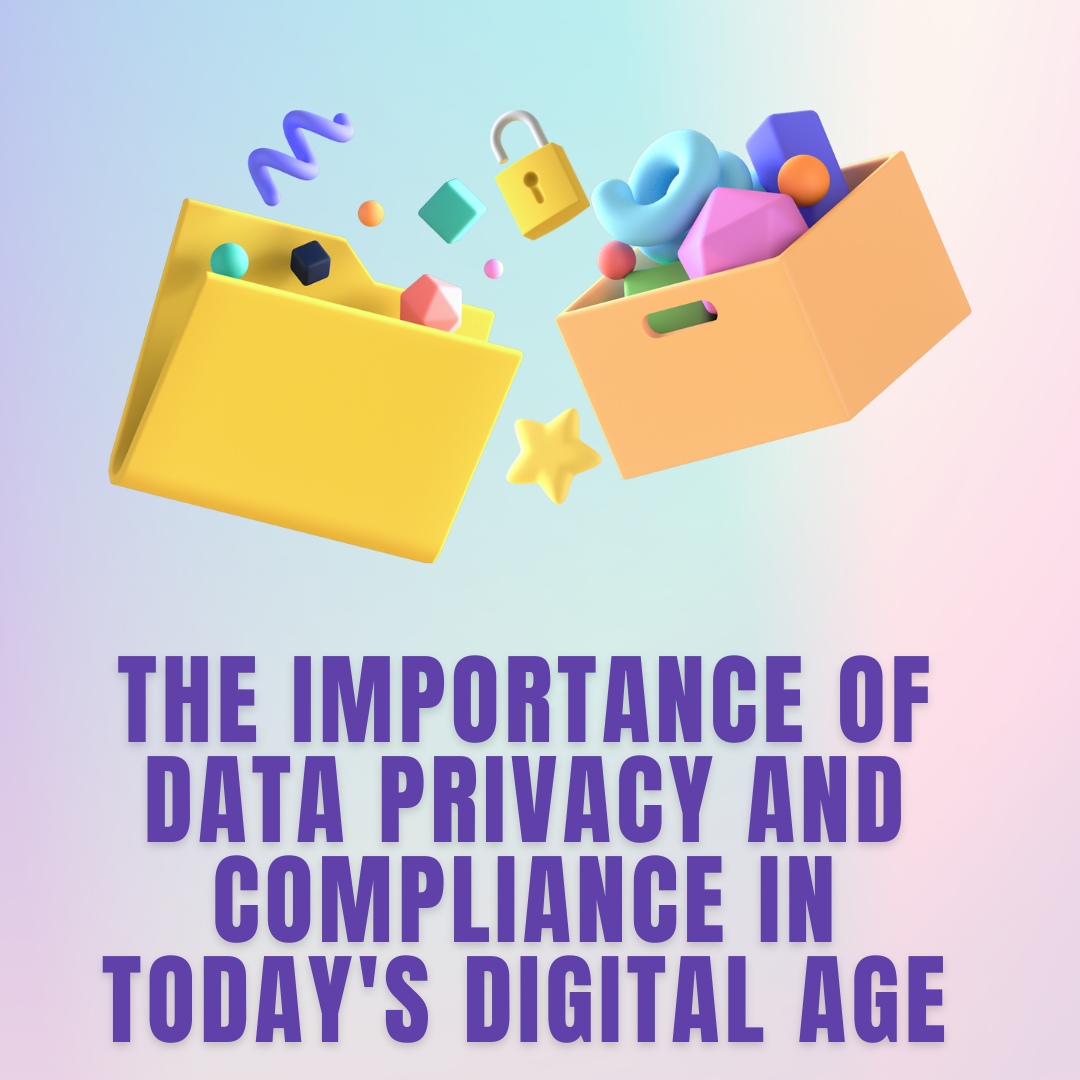In today’s digital age, data privacy and compliance have become critical issues for individuals, businesses, and governments alike. With the exponential growth of digital data and the increasing interconnectedness of our online world, protecting personal information and ensuring compliance with data protection regulations are more important than ever. This article delves into the importance of data privacy and compliance, the challenges involved, and the strategies needed to safeguard data in the digital landscape.
Understanding Data Privacy
Data privacy refers to the right of individuals to control how their personal information is collected, used, and shared. Personal data includes any information that can be used to identify an individual, such as names, addresses, email addresses, phone numbers, social security numbers, and even IP addresses and online behavior. Ensuring data privacy means protecting this information from unauthorized access, misuse, and breaches.
Why Data Privacy Matters:
- Protection of Personal Information: Personal data can be sensitive and, if misused, can lead to identity theft, financial loss, and other forms of harm. Ensuring data privacy helps protect individuals from such risks.
- Trust and Reputation: For businesses, maintaining data privacy is crucial for building trust with customers and clients. A data breach can severely damage a company’s reputation and result in loss of business.
- Compliance with Laws and Regulations: Many countries have enacted strict data protection laws that mandate how personal data should be handled. Non-compliance can result in hefty fines and legal consequences.
Key Data Privacy Regulations
Several regulations have been established globally to protect data privacy and ensure compliance. Some of the most notable ones include:
General Data Protection Regulation (GDPR): Enforced by the European Union, GDPR is one of the most comprehensive data protection regulations. It gives individuals more control over their personal data and imposes strict requirements on organizations that handle such data, including obtaining explicit consent, ensuring data portability, and reporting breaches within 72 hours.
California Consumer Privacy Act (CCPA): CCPA is a state-wide data privacy law in California that provides residents with the right to know what personal data is being collected about them, the right to delete personal data, and the right to opt-out of the sale of their personal data.
Health Insurance Portability and Accountability Act (HIPAA): In the United States, HIPAA sets national standards for protecting sensitive patient health information. It requires healthcare providers and other entities to implement safeguards to ensure data privacy and security.
Personal Data Protection Act (PDPA): Countries like Singapore have implemented the PDPA, which governs the collection, use, and disclosure of personal data, ensuring that organizations handle personal information responsibly.
Challenges in Data Privacy and Compliance
Despite the importance of data privacy and compliance, several challenges make it difficult to achieve:
Complexity of Regulations: The sheer number and complexity of data protection regulations can be overwhelming for organizations, especially those operating internationally. Each regulation has its own set of requirements, making compliance a daunting task.
Evolving Cyber Threats: Cybercriminals are continually developing new methods to breach data systems. Keeping up with these evolving threats requires constant vigilance and advanced security measures.
Data Volume and Variety: The vast amount of data generated daily, along with the variety of data types, complicates the task of ensuring data privacy. Organizations must manage and protect data across different platforms and devices.
Balancing Privacy and Innovation: Companies often face the challenge of balancing data privacy with the need for innovation. While data is essential for developing new products and services, it must be used responsibly to protect individuals’ privacy.
Strategies for Ensuring Data Privacy and Compliance
To address these challenges, organizations must adopt comprehensive strategies to safeguard data privacy and ensure compliance with regulations:
Implement Robust Security Measures: Organizations should deploy advanced security technologies such as encryption, firewalls, intrusion detection systems, and multi-factor authentication to protect data from unauthorized access and breaches.
Data Minimization: Collect only the data that is necessary for a specific purpose. Limiting the amount of personal information collected reduces the risk of data breaches and simplifies compliance efforts.
Regular Audits and Assessments: Conduct regular audits and assessments to identify vulnerabilities and ensure compliance with data protection regulations. This includes evaluating third-party vendors and partners to ensure they also adhere to data privacy standards.
Employee Training and Awareness: Educate employees about data privacy and security best practices. Regular training sessions can help employees recognize potential threats and understand their role in protecting personal information.
Data Anonymization and Pseudonymization: Techniques such as anonymization and pseudonymization can help protect personal data by making it difficult to link information to specific individuals. These methods are particularly useful for data analysis and research purposes.
Establish Clear Policies and Procedures: Develop and enforce clear data privacy policies and procedures. This includes creating protocols for data handling, storage, and disposal, as well as procedures for responding to data breaches.
Obtain Explicit Consent: Ensure that individuals provide explicit consent before collecting and processing their personal data. Clearly communicate how their data will be used and offer options to opt out if they choose.
Leverage Technology Solutions: Utilize data privacy management tools and software to automate compliance processes, track data usage, and manage consent. These tools can help organizations stay compliant with regulations and reduce the risk of human error.
Engage with Data Protection Officers (DPOs): Appoint a Data Protection Officer (DPO) to oversee data privacy and compliance efforts. The DPO should have a thorough understanding of relevant regulations and be responsible for ensuring the organization adheres to data protection standards.
The Future of Data Privacy and Compliance
As technology continues to evolve, so too will the landscape of data privacy and compliance. Emerging technologies such as artificial intelligence (AI), blockchain, and the Internet of Things (IoT) present new opportunities and challenges for data protection.
AI and Machine Learning: AI can enhance data privacy by identifying patterns and anomalies that may indicate potential breaches. Machine learning algorithms can also automate compliance processes, making it easier for organizations to adhere to regulations.
Blockchain Technology: Blockchain’s decentralized nature and cryptographic security features make it a promising tool for ensuring data integrity and privacy. It can provide transparent and tamper-proof records of data transactions, enhancing trust and accountability.
Internet of Things (IoT): The proliferation of IoT devices increases the volume of data generated, raising concerns about privacy and security. Ensuring the privacy of data collected by IoT devices will require robust encryption, secure data storage, and strict access controls.



